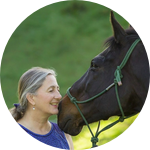About This Project
Millions of cats that enter US animal shelters every year are euthanized. Currently, there is little scientific information about how to best match up individual cats with prospective adopters, meaning that adoptions either never occur or they fail (the cat is returned to the shelter). Combining research on human and feline personality, we aim to create a compatibility assessment tool that will allow cats to be placed in homes where they have the best chance for long term success.
Ask the Scientists
Join The DiscussionWhat is the context of this research?
The breakdown of the human-animal bond that leads to the relinquishment of cats to animal shelters has negative effects on surrendering owners, as well as shelter staff. A large percentage of cats in shelters are euthanized, leaving shelter staff at risk for post-traumatic stress, perpetration-induced traumatic stress, and secondary-traumatic stress syndrome (compassion fatigue).
In addition to the toll on humans, shelters are stressful environments for the cats and represent a significant animal welfare issue. Research on human and feline personality has the potential to ameliorate some of the negative effects of current animal sheltering practices by providing better ways of keeping animals in their homes and out of shelters.
What is the significance of this project?
Currently, the most effective method of matching cats to appropriate owners and homes is the ASPCA’s Meet your Match® (MYM) Feline-ality™ program. This adoption program has been shown to increase adoption rates and retention, as well as predict some behavior in the home.
However, the MYM® process is time-consuming and labor intensive and can be difficult for understaffed and underfunded animal shelters to implement. Subjective informant survey-type measuring tools of personality have been shown to be as accurate as observational behavioral coding, therefore it is possible that surveys of cats (completed by handlers) could detect the same two personality factors measured in Feline-ality™ and provide a faster, easier, and less expensive method to assess cats.
What are the goals of the project?
The main goal of this project is two-fold: to determine if survey methods of measuring personality traits in cats may augment, and in some cases, substitute for Feline-ality™, and to determine if humans and cats matched using relational personality models report greater relationship satisfaction and attachment, resulting in adoption success.
This project takes a multi-method, multi trait, and longitudinal approach to personality research. Participants will complete a series of surveys related to both human and cat personality at various time points. That information will be compared to the Feline-ality™ behavioral assessment and analyzed together, we will see which traits best predict relationship satisfaction, attachment to the cat, and retention of the cat in the home.
Budget
$5,000: In order to be able to draw scientifically valid conclusions regarding personality traits with so many variables and in two species, we need a large sample size! We will be also be asking people to complete multiple surveys over a 3 month period. In order to combat attrition, in addition to internet survey links, we would like to mail paper copies of the surveys to a minimum of 300 adopting owners, as well as offer the chance to win an additional $50 gift card upon completion of the study. We would also like a second sample from cat owners outside of the area and outside of this one shelter, for comparison purposes. Additional funding would allow us to recruit 150 members of Mechanical Turk (an online crowd-sourcing marketplace) to complete our surveys.
$8000: We would like to be able to offer ongoing compensation to our adopters in order to keep attrition levels low, specifically $10 gift cards at 1 month post adoption.
Endorsed by
 Project Timeline
Project Timeline
Apr 24, 2017
Project Launched
Jun 01, 2017
Mail first round of post-adoption surveys
Jul 01, 2017
Mail second round of post-adoption surveys
Jul 01, 2017
Start internet data collection
Aug 01, 2017
Mail third round of post-adoption surveys
Meet the Team
Affiliates
James Ha
My academic and practical training is in the social behavior of birds and mammals, with a special focus on highly social species like domestic dogs, crows and jays, primates, and killer whales. My background includes a Bachelor's degree in Biology from Millersville University (1980), a Master’s degree in Biology from Wake Forest University (1983), a Ph.D. in Zoology, with a specialization in animal behavior, from Colorado State University (1989), and professional credentialing as a Certified Applied Animal Behaviorist, the highest level of certification in dog behavior that is available. At the University of Washington since 1990, I am currently an Emeritus Research Professor in Psychology (Animal Behavior Program) where I teach and conduct research in complex social behavior and cognition of several animal species.
During my graduate training, I interned with Dr. Philip Lehner (Colorado State University) and was active in his behavior consulting business in Colorado, Animal Behavior Associates of Colorado. I started my own consulting business in companion animal behavior in 1999 and currently practice through Adaptive Animals, LLC with Dr. Robin Foster (AdaptiveAnimals.com). I perform in-home evaluations and treatments on behavior issues (80% aggression) in dogs, cats and parrots (averaging 45 cases/year) and advise on additional cases per year seen by my colleagues. In addition, I have participated in a number of legal cases as an expert witness, both Consulting and Testifying, and on cases involving both dog bites and dog tracking behavior. I have also been involved with the development of the professional certification program for applied animal behaviorists through our professional academic organization, the Animal Behavior Society (www.animalbehavior.org) and have served as a member of the Animal Behavior Society’s Executive Committee for many years.
Saethra Darling
I received my MS in Animal Behavior at the University of Washington and am currently working towards my PhD, focusing on Applied Animal Behavior. I am also a licensed veterinary technician with 15 years of experience in both general and emergency practice. My work in the veterinary field revealed to me that the main reasons for euthanizing otherwise healthy pets were almost entirely behavioral, which motivated me to begin research on companion animal behavior, eventually specifically focusing on cats. I also operate a feline behavior specialty practice (Sleeping Tiger Consultations, LLC). I continue to pursue research because sound science based on rigorous empiricism that contributes to the overall body of knowledge of companion animal behavior in an accessible manner can be disseminated far beyond my physical reach.
I have three kitties: Majesty (22.5y), Marble (16y) and Flower (15y). Our personalities are well-suited…
Additional Information
The second main goal of this research is to create a personality assessment tool for use in future work, in or out of shelters. Such a tool might also be useful for helping mental health practitioners choose the correct cats for individualized animal-assisted therapeutic interventions. Future directions would also include adapting the tool so as to match up cats with each other (multi-cat households), as well as with adopters.
Project Backers
- 57Backers
- 103%Funded
- $5,167Total Donations
- $52.93Average Donation


